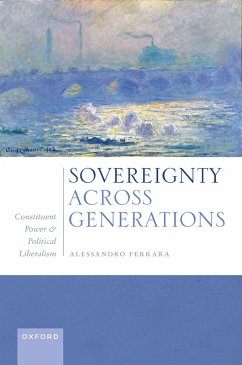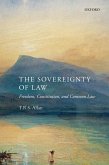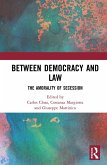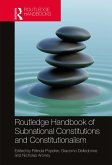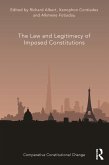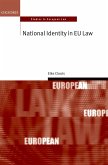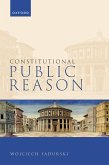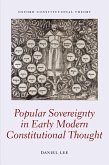Every cohort of voters may dream of being 'the people' under the sway of serial visions of sovereignty; or understand itself, more modestly, as co-author of a constitutional project in a cross-generational sequence rooted in the past and extending into the future. Sovereignty Across Generations offers a theory of democratic sovereignty and constituent power grounded in John Rawls's political liberalism. Neither exegetic nor abstractly analytic, this book assumes that 'political liberalism' is broader than Political Liberalism. In answering the question 'How is it possible for there to exist over time a just and stable society of free and equal citizens, who remain profoundly divided by reasonable religious, philosophical, and moral doctrines?', the paradigm implicit in Political Liberalism enables us to address facets of that question that Rawls sidelined in the context of his time. Following populist threats to democracy, which were still latent in 1993, this book responds to the urgency of clarifying the proper relation of 'the people' (as transgenerational author of the constitution) to its pro-tempore living segment in its capacity as electorate and as co-author of the constitution. An explanation of that relation brings 'constituent power' into the picture and unfolds in seven steps that form the conceptual backbone of this book. By taking new steps in updating and revisiting political liberalism, this book reconstructs Rawls's implicit view of constituent power beyond the pages dedicated to it in Political Liberalism and brings that view into conversation with major constitutional theories of the twentieth century. This book is a must read for all those interested in the fields of politics, philosophy, and constitutional law.
Dieser Download kann aus rechtlichen Gründen nur mit Rechnungsadresse in A, B, BG, CY, CZ, D, DK, EW, E, FIN, F, GR, HR, H, IRL, I, LT, L, LR, M, NL, PL, P, R, S, SLO, SK ausgeliefert werden.

